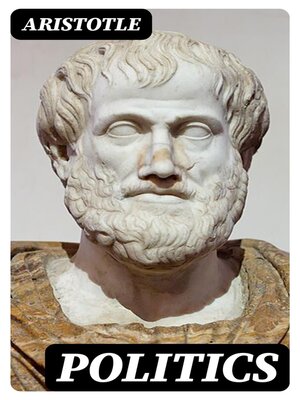
Sign up to save your library
With an OverDrive account, you can save your favorite libraries for at-a-glance information about availability. Find out more about OverDrive accounts.
Find this title in Libby, the library reading app by OverDrive.



Search for a digital library with this title
Title found at these libraries:
| Loading... |
In 'Politics,' Aristotle builds on his profound knowledge of political science and ethics to explore the structures and organizations of city-states, or polis, proposing a robust analysis of governmental forms and civic participation. Aristotle employs a meticulous approach, distinguishing between constitutions that prioritize the common good, and thereby serve justice and the true interests of the polity, and those that deviate towards the self-interest of the ruling few. His literary narrative is systematic and comprehensively categorizes political systems, offering valuable insights into the functioning and governance of societies. Positioned within the larger tapestry of Aristotelian philosophy, 'Politics' complements his ethical theories and stands as a seminal text in the Western political philosophy corpus, exerting influence that transcends the centuries post its origin. Aristotle, a luminary of ancient Greek philosophy, was a disciple of Plato and the mentor to Alexander the Great. His encyclopedic knowledge and rigorous empirical methodology led him to contribute extensively across diverse fields including biology, metaphysics, ethics, and rhetoric. 'Politics' can be seen as a culmination of his philosophical ethos—meticulous observation followed by rational analysis. The text embodies Aristotle's belief that understanding the constitution of a state is fundamental to grasping its ethos and psyche, providing a framework that prompted subsequent generations to reflect critically about the nature of governance and societal welfare. 'Politics' is recommended not only for philosophers and political scientists but for anyone interested in the evolution of civic institutions and ideals. It offers both historical context and timeless principles, serving as a touchstone for discussions about governance and civil responsibility. Its scholarly relevance continues to inspire contemporary debates about political structures and their impact on human flourishing, rendering it an essential read for those who seek to understand the fundamental questions of collective human life and governance.






